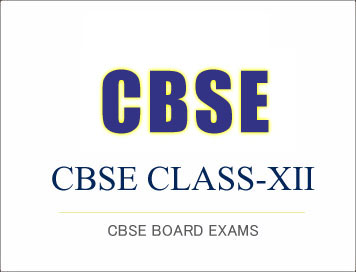(Download) CBSE Class-12 Sample Paper And Marking Scheme 2017-18 : Legal Studies
Disclaimer: This website is NOT associated with CBSE, for official website of CBSE visit - www.cbse.gov.in
(Download) CBSE Class-12 Sample Paper And Marking Scheme 2017-18 : Legal Studies
LEGAL STUDIES SAMPLE PAPER
SUB CODE: 074
MAX MARKS 100
TIME 3 HRS
General Instructions:
(i) There are 30 questions in all.
(ii) All the questions are compulsory.
(iii) Questions number 1 to 8 are multiple choice questions carrying 1 mark each.
(iv) Questions number 9 to 14 are short answer questions carrying 2 marks each. Answer to each of these should not exceed 50 words.
(v) Questions number 15 to 20 are short answer questions carrying 4 marks each. Answer to each of these should not exceed 100 words.
(vi) Questions number 21 to 24 are long answer questions carrying 5 marks each. Answer to each of these should not exceed 150 words.
(vii) Questions number 25 to 30 are long answer questions carrying 6 marks each. Answer to each of these should not exceed 200 words.
1. The judiciary has adopted the role of a social activist through-
a. Original Jurisdiction
b. Advisory Jurisdiction
c. Special Leave to Appeal
d. Public Interest Litigation
2. Amit sold his farmhouse to Puja which consisted of apple and plum orchards, meant primarily for selling the produce of the orchards. Identify which law will govern this transaction:
a. Sale of Goods Act
b. Transfer of Property Act
c. Indian contract Act
d. Consumer protection Act
3. Ashish hits Rohan with a stone from his rear. Rohan could not see the stone coming towards him. Does this act amount to tort?
a. Yes, because battery can take place even without assault
b. Yes, because assault can take place even without battery
c. No, battery cannot take place without assault
d. No, assault cannot take place without battery
4.Gopal is a neighbor of Pankaj. Gopal hangs wet clothes on his balcony and the dripping water spoils the clothes of Pankaj. This situation leads to a fight between the two. How can the dispute be best resolved between the two parties;
a. Ombudsman
b. Arbitration
c. Mediation
d. Conciliation
5.Ashok was convicted and awarded death penalty in a rarest of rare case by the Hon’ble Supreme Court of India in the year 2010. The sentence has not execution. Which of the following options can be best applied in this
situation:
a. Ashok cannot be given any relief as it’s a rarest of rare case
b. Ashok has a right to appeal as the wait period is longer than 5 years
c. Ashok does not have a right to appeal as no appeal can be filed against the judgment of a Supreme Court
b. Ashok has a right to appeal on the ground of reformation.
6. Mr. Smith, a foreign national visited India and was arrested on the suspicion of smuggling gold. He did not have the means to engage a lawyer and was thus unable to present his case. Identify the fundamental right of Mr. Smith violated in the above situation:
a. Article 14 – Right to equality
b. Article 19 – Right to freedom
c. Article 21 – Right to life and personal liberty
d. Article 24 – Right against exploitation
7. Vishal, a lawyer appearing in the Supreme Court argues cases in court upon instructions from another advocate. He wears gown that has flaps on the shoulders and cannot file a vakalatnama. Which category of lawyers does
Vishal belong to?
a. Senior Advocate
b. Advocate on Record
c. Solicitor
d. Attorney General
8. Arrange sequentially, the evolution of legal services in India
1. Article 39A inserted via 42nd Amendment Act
2. Committee under Justice Krishna Iyer to develop legal aid scheme for states
3. Parliament enacted the Legal Services Authorities Act, 1987
4. Committee on National Implementation of Legal Aid under Justice P N Bhagwati
a. 1,2,3,4
b. 1.3.2.4
c. 4,1,2,3
d. 2,1.4,3
9. How do regulators assist in the functioning of Tribunals? State, giving examples.
10. Apart from early retirement age, give any two factors that deter any senior lawyer from accepting judgeship in India.
11. Rita is charged for stealing jewelry. During the trial, she negotiates with the prosecution whereby the prosecution agrees to press for lesser charges. Identify and explain this arrangement.
12. Saahi, a resident of Candia, fearing persecution on the grounds of nationality, seeks asylum from a neighboring country, and is unwilling to

